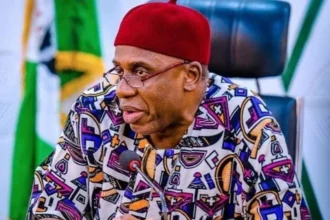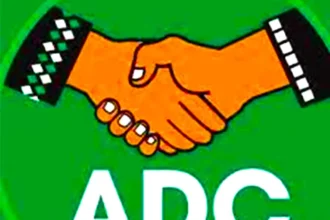...To get all news updates, Join our WhatsApp Group (Click Here)
Also Join our WhatsApp Channel (Click Here)
Tony O. Elumelu, CFR, Founder of the Tony Elumelu Foundation (TEF), hosted a reception with Cindy McCain, Executive Director of the World Food Programme (WFP), to highlight youth unemployment and hunger in Africa, on the sidelines of the 79th United Nations General Assembly meetings, in New York City. The gathering convened philanthropists, entrepreneurs, change makers, policymakers and global leaders.
Dialogue centred on two pressing themes, fundamental to Africa’s transformation: providing a lasting solution to hunger and the transformative potential of entrepreneurship to eradicate poverty on the continent. With over 7,500 of Tony Elumelu Foundation entrepreneurs drawn from the food sector, the link between sustainable access to food and entrepreneurship was clear. The event was also an opportunity for WFP, once again, to highlight the “forgotten” humanitarian emergencies ongoing in Africa, including Sudan and the DRC, where WFP is delivering in the most challenging of environments. McCain detailed WFP’s efforts to mitigate hunger in global conflict zones, including Sudan, Gaza, and Ukraine. Both McCain and Elumelu underlined the urgency and the need for novel approaches, going beyond short-term fixes, and creating sustainable, empowering solutions. Hunger in Africa is often a direct consequence of climate change and Elumelu reiterated the need for an equitable approach to climate and sustainable energy across Africa.
The event also served to introduce WFP’s exclusive philanthropic initiative, spearheaded by McCain, which aims to unite global leaders in the pursuit of Zero Hunger. “We are at a pivotal moment where global hunger has reached alarming levels, fuelled by conflict, economic instability, and the climate crisis. WFP is supporting communities in need across the globe, but we cannot do it alone. Political and private sector leaders must step up now. We need bold action and innovative partnerships to turn the rising tide of humanitarian needs. If we all join hands in the fight against hunger, we can achieve our shared ambition of a better future for all,” said McCain.
Elumelu spoke of the vital role entrepreneurship plays in fostering stability, growth and purpose. He said: “Entrepreneurship creates economic resilience and plays a critical role in preventing crises. 783 million people are affected by hunger worldwide – this is a humanitarian issue, a global crisis. At the Tony Elumelu Foundation, we empower young African entrepreneurs who will build resilient economies from the ground up and drive sustainable change, ensuring prosperity even in the most fragile contexts.”
About the Tony Elumelu Foundation
The Tony Elumelu Foundation is the leading philanthropy empowering a new generation of African entrepreneurs, driving poverty eradication, catalysing job creation across all 54 African countries, and ensuring inclusive economic empowerment. prosperity. In 2015, Elumelu and his family committed US$100 million to launch a legacy entrepreneurship programme, to empower young African entrepreneurs.
Since the launch of the Programme, the Foundation has given access to training to over 1.5 million young Africans on its digital hub, TEFConnect, and disbursed USD$100 million in direct funding to 20,000+ young African women and men, who have collectively generated over USD$2.5 billion in revenue and created over 400,000 direct and indirect jobs across Africa.
The Foundation’s mission is rooted in Africapitalism, which positions the private sector, and most importantly entrepreneurs, as the catalyst for the social and economic development of the African continent.”
You can get every of our news as soon as they drop on WhatsApp ...To get all news updates, Join our WhatsApp Group (Click Here)
Also Join our WhatsApp Channel (Click Here)











